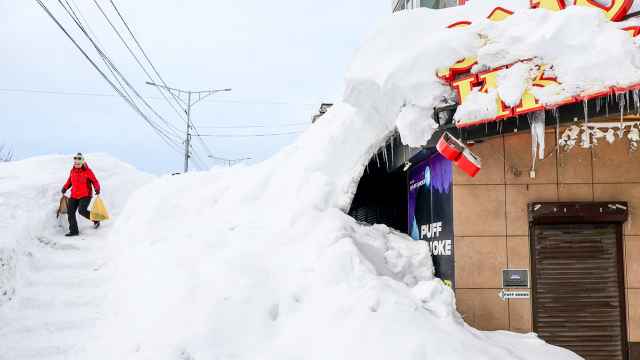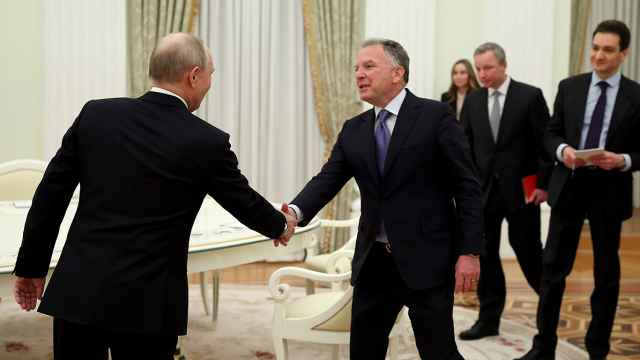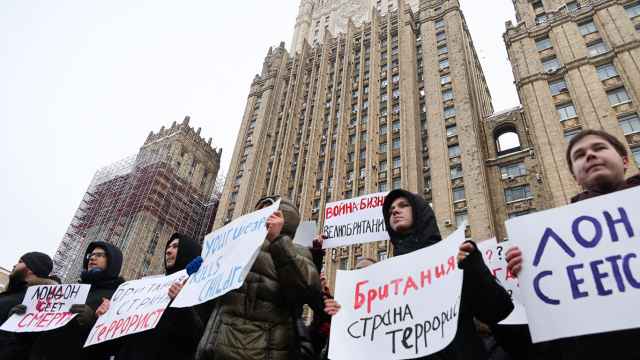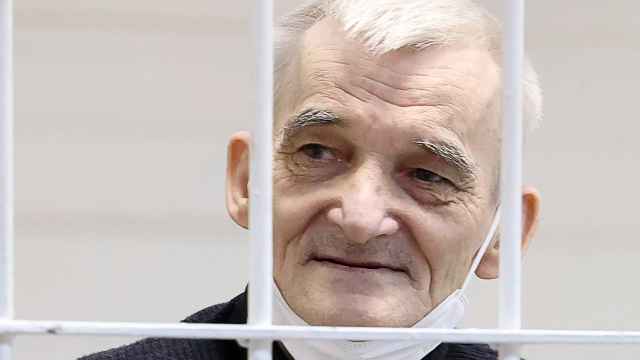Has Russia truly changed its ways on human rights? Certainly its new law restricting public protests fuels grave and widespread concerns. Moreover, in at least one key area, religious freedom, Russia has not changed in many respects. This assessment should provoke serious discussion as the United States faces decisions about its relationship with its former Cold War foe.
Russia is poised to enter the World Trade Organization later this month. To reap trade benefits from its entry, the United States would have to exempt Russia from the trade restrictions of the 1974 Jackson-Vanik amendment, which includes Russia due to its past restrictions on the right to emigrate during the Soviet period.
What should the United States do? It should continue to hold Russia accountable.
Over the past decade, the Kremlin has exploited legitimate security concerns about violent religious extremism by restricting the rights of nonviolent religious minority members. Its major tool is an extremism law. Enacted in 2002, the law imposes sanctions on religious extremism, which it defines as promoting the "exclusivity, superiority, or inferiority of citizens" based on religion. The law now applies to peaceful actors and actions. In addition, individuals who defend or sympathize openly with those charged also may face charges.
Once a higher court upholds a prior ruling that religious material is "extremist," the material is banned, with convicted individuals facing penalties ranging from a fine to five years in prison. As of June, the government has banned 1,254 items, according to the Sova Center, a Russian nongovernmental organization.
Russian citizens who preach that their particular faith is superior to others are potentially liable to prosecution. As written, this dangerously broad law can easily entrap peaceful members of religious groups, including those among the country's Muslims, who number from 16 million to 20 million, simply for alleging the truth or superiority of their beliefs.
These concerns are not merely hypothetical. When a court in 2007 banned Russian translations of 14 Koranic commentaries by Turkish theologian Said Nursi, security wasn't the issue. It was Nursi's assertion of Islam's "exclusivity." Fifteen Nursi readers have stood trial on extremist charges related to banned materials, and five have served the maximum three-year prison terms, Forum 18 news service reported. Six known Nursi readers are being investigated on these charges, including Ramil Latipov. In a chilling throwback to the Soviet era, authorities want Amir Abuyev, a Nursi reader in Kaliningrad, to undergo a psychiatric evaluation.
The bans on Nursi texts are among a series of sweeping prohibitions of Islamic materials under Russia's extremism law. Responding on June 18 to an Orenburg court's earlier banning of 65 Muslim texts issued by "literally all Islamic publishers in Russia," the Council of Muftis protested that this constituted the "revival of total ideological control … [and is] unacceptable in a democratic society."
While most banned religious material is Islamic, Russia also has used the extremism law to target non-Muslim groups.
Prominent among these groups is the pacifist Jehovah's Witnesses. Four are on trial: Yelena Grigoryeva, Maxim Kalinin and married couple Andrei and Lyutsiya Raitin. In 2009, a city court in the Altai republic ruled 16 Jehovah's Witness publications extremist. On May 4, authorities conducted at least 16 raids in the Orenburg region on Jehovah's Witness homes and places of worship, including a 15-hour raid on an elderly couple's home.
The same holds true for the Church of Scientology. In August 2011, a Tatarstan city court ruled 13 Scientology items extremist. As of April 2012, a St. Petersburg prosecutor has targeted a film on psychiatric abuse by the Scientology-funded Citizens Commission on Human Rights. In May, seven Scientology materials were added to the Federal List of Extremist Materials.
For a year, Russia's relations with India had worsened until a higher court overturned a ruling in Tomsk which had banned a Hare Krishna version of Hinduism's holy book, the Bhagavad Gita.
Simply stated, security concerns aren't the sole driver of Russia's religious freedom abuses. All too often, security is a pretext for unacceptable religious repression. Authorities view certain groups, particularly those seeking converts, as threats to the country's religious and cultural identity as embodied in the Russian Orthodox Church's Moscow Patriarchate. A case in point is the prosecution of human rights defender Maxim Yefimov in the Karelia region after he criticized the church on his blog in December 2011.
Both the extremism law and its application flatly violate Russia's international human rights commitments, including the International Covenant on Civil and Political Rights. In 2009, the United Nations Human Rights Committee, which oversees compliance with the covenant, recommended that Russia's extremism law limit its definition of extremism to threats or acts of violence. In June, the Council of Europe's Venice Commission also called for reform of this law, noting that its definitions of extremism are overly broad, lack clarity, invite arbitrary application and violate international human rights standards.
How should the United States respond to Russia's violations of religious freedom and related human rights abuses?
The U.S. Congress must maintain the Jackson-Vanik sanctions until the proposed Magnitsky Act becomes law. This bill would impose U.S. visa bans on and freeze bank assets of publicly named Russian officials, including Chechen leader Ramzan Kadyrov, who are implicated in abusing human rights and religious freedom. The U.S. government should also implement the Smith amendment, which would bar assistance to Russia's government because of its treatment of nonviolent religious minority groups, and urge Russia to reform its extremism law so it ceases to apply to peaceful groups and individuals.
Before Russia enters the World Trade Organization, the United States needs to impress upon the Kremlin — and the world — that human rights and religious freedom matter.
Katrina Lantos Swett chairs the U.S. Commission on International Religious Freedom. Robert George is a commissioner on the U.S. Commission on International Religious Freedom.
A Message from The Moscow Times:
Dear readers,
We are facing unprecedented challenges. Russia's Prosecutor General's Office has designated The Moscow Times as an "undesirable" organization, criminalizing our work and putting our staff at risk of prosecution. This follows our earlier unjust labeling as a "foreign agent."
These actions are direct attempts to silence independent journalism in Russia. The authorities claim our work "discredits the decisions of the Russian leadership." We see things differently: we strive to provide accurate, unbiased reporting on Russia.
We, the journalists of The Moscow Times, refuse to be silenced. But to continue our work, we need your help.
Your support, no matter how small, makes a world of difference. If you can, please support us monthly starting from just $2. It's quick to set up, and every contribution makes a significant impact.
By supporting The Moscow Times, you're defending open, independent journalism in the face of repression. Thank you for standing with us.
Remind me later.





